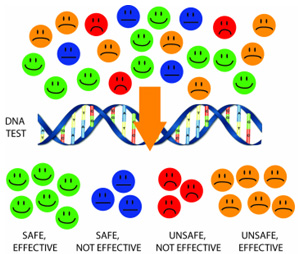In the realm of precision medicine, advancements in technology have enabled the creation of highly specialized medical devices and components, offering tailored solutions for individual patient needs. Customization has become a cornerstone in the production of precision medical parts, revolutionizing the healthcare landscape. By crafting intricately designed components to precise specifications, customization offers a myriad of advantages that significantly impact patient care, treatment outcomes, and the efficiency of medical procedures.
Personalized Solutions for Unique Requirements
One of the primary advantages of customization in precision medical parts lies in its ability to provide personalized solutions. Every patient possesses unique anatomical structures and medical conditions, making standardized medical devices sometimes inadequate. Customization allows for the creation of parts tailored to the specific needs of individual patients, ensuring a more precise fit and functionality. Whether it’s orthopedic implants, prosthetics, or surgical tools, customization ensures that the medical devices are perfectly precision medical machining to the patient, leading to improved comfort, functionality, and ultimately better outcomes.
Enhanced Performance and Functionality
Precision medical parts created through customization offer enhanced performance and functionality compared to their mass-produced counterparts. These parts are meticulously designed and manufactured with advanced technologies like 3D printing and computer-aided design (CAD), allowing for intricate detailing and exact specifications. This level of precision ensures that the medical devices perform optimally, meeting the unique demands of each patient. Improved functionality not only enhances patient comfort but also contributes to the success of medical procedures and treatments.
Reduction in Surgical Complications and Recovery Time
The use of customized precision medical parts can significantly reduce surgical complications and shorten recovery times. Ill-fitting or generic medical devices can lead to complications such as implant rejection, discomfort, or even tissue damage. Customization mitigates these risks by ensuring that the devices match the patient’s anatomy perfectly. Reduced complications translate to quicker recovery periods, allowing patients to resume their daily activities sooner and improving their overall quality of life.
Cost-Effectiveness in the Long Run
While customization in precision medical parts may initially appear more expensive due to the specialized manufacturing process, it can offer cost-effectiveness in the long run. Tailored devices reduce the need for revisions or replacements caused by ill-fitting standardized parts. Moreover, by preventing complications and improving treatment outcomes, customized parts can reduce hospital stays and follow-up procedures, ultimately lowering overall healthcare costs.
Facilitating Innovation and Research
Customization plays a pivotal role in fostering innovation and driving medical research forward. The ability to tailor medical devices according to specific requirements encourages continuous improvements in design, materials, and manufacturing techniques. Researchers and manufacturers can experiment with new materials and technologies to create even more sophisticated and effective medical devices. This constant innovation benefits not only individual patients but also contributes to the advancement of medical science as a whole.
Empowering Healthcare Professionals
Healthcare professionals are empowered by the use of customized precision medical parts. Having access to devices tailored precisely for their patients enables them to provide better care and more effective treatments. Customized tools and implants offer healthcare practitioners greater confidence in performing procedures, leading to increased precision and success rates. This empowerment contributes to a higher level of patient satisfaction and trust in the healthcare system.
Conclusion
Customization in precision medical parts represents a paradigm shift in healthcare, offering tailored solutions that significantly enhance patient care and treatment outcomes. By providing personalized devices designed to exact specifications, customization ensures better functionality, reduced complications, and improved patient comfort. Additionally, it fosters innovation, reduces long-term costs, and empowers healthcare professionals to deliver superior care. As technology continues to advance, the role of customization in precision medicine will undoubtedly expand, bringing about further improvements in patient-centered healthcare.



